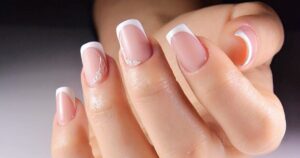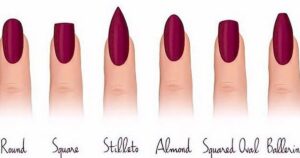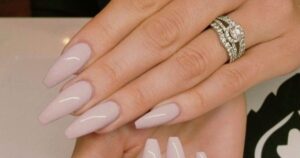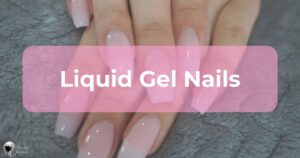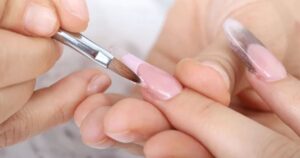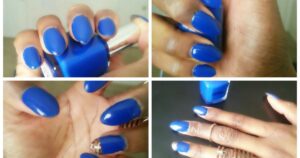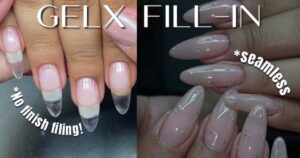Gray hair can be likened to a silver crown, a symbol of wisdom and experience. But for those seeking to restore their natural color, the allure of reversing gray hair is undeniable. In this article, we explore the science behind the use of baking soda on gray hair, examining its potential to restore pigmentation. We will also discuss the pros and cons of this method, debunk common myths, and offer alternative treatments. Join us on this journey to uncover the secrets of baking soda and gray hair.
Key Takeaways
- Baking soda can act as a natural hair color restorer by neutralizing hydrogen peroxide buildup in gray hair.
- Excessive use of baking soda can lead to dryness, breakage, and scalp irritation.
- Other natural remedies, such as coconut oil, curry leaves, black tea, and amla, are also believed to help with gray hair, but scientific studies are limited.
- Reversing gray hair entirely may not be possible without addressing genetic factors.
The Science Behind Baking Soda and Gray Hair
The scientific analysis of the interaction between baking soda and gray hair reveals the potential for restoring pigment and reversing the graying process. Baking soda, also known as sodium bicarbonate, is an alkaline compound that can help remove impurities and buildup from the hair. When applied to gray hair, baking soda may act as a natural hair color restorer by neutralizing the buildup of hydrogen peroxide, which is known to contribute to graying. However, it is important to note that there are potential risks and long-term effects associated with using baking soda on hair. Excessive use of baking soda can lead to dryness, breakage, and scalp irritation. It is recommended to consult with a professional hairstylist or dermatologist before using baking soda on gray hair to understand the potential risks and determine the most suitable treatment approach.
Does Baking Soda Really Reverse Gray Hair
During the ongoing discussion on the efficacy of baking soda in reversing gray hair, researchers are delving into the scientific evidence to ascertain the veracity of this claim. While some individuals swear by the use of baking soda as a natural remedy for gray hair, it is important to consider alternative options and the role of genetics in gray hair development.
To provide a comprehensive overview, here is a table showcasing other natural remedies for gray hair reversal and their potential effectiveness:
| Natural Remedy | Potential Effectiveness |
|---|---|
| Coconut oil | May help prevent further graying |
| Curry leaves | Rich in antioxidants, may promote hair health |
| Black tea | Can darken hair temporarily |
| Amla (Indian gooseberry) | Contains melanin, may help restore hair color |
It is important to note that while these remedies may have anecdotal evidence supporting their use, scientific studies are limited. Furthermore, genetics play a significant role in gray hair development, and reversing it entirely may not be possible without addressing underlying genetic factors.
How to Use Baking Soda on Gray Hair?
To use baking soda on gray hair, mix equal parts baking soda and water to create a paste. Apply the paste to your hair, focusing on the gray areas. Leave it in for 15-20 minutes, then rinse thoroughly.
Baking Soda’s Effectiveness
Applying baking soda on gray hair enhances its pigmentation, resulting in a noticeable reduction of gray strands. Baking soda has been praised for its potential benefits in hair health, and its effect on hair color maintenance is no exception. The pH level of the hair plays a crucial role in maintaining its color. When the hair’s pH level is imbalanced, it can lead to color fading and dullness. Baking soda, with its alkaline properties, helps to restore the hair’s pH balance, thereby enhancing its pigmentation. Here is a table illustrating the role of pH in hair color maintenance:
| pH Level | Effect on Hair Color |
|---|---|
| Acidic | Fades color |
| Neutral | Maintains color |
| Alkaline | Enhances color |
Potential Side Effects?
What are the potential side effects of using baking soda on gray hair? While baking soda is often used as a natural remedy for various beauty concerns, it is important to understand the potential risks and long-term effects before using it on your gray hair. Baking soda is known for its alkaline properties, which can help remove product buildup and restore shine to hair. However, using baking soda too frequently or in high concentrations can lead to dryness and damage to the hair shaft. The alkaline nature of baking soda can disrupt the natural pH balance of the scalp, leading to scalp irritation and sensitivity. It is recommended to use baking soda sparingly and in moderation, and to consult with a professional hairstylist or dermatologist before incorporating it into your hair care routine.
Pros and Cons of Using Baking Soda on Gray Hair
Using baking soda on gray hair can potentially provide benefits such as brightening and reducing yellow tones, but it may also lead to dryness and damage if not used correctly. When considering natural remedies for gray hair, it is important to understand the pros and cons. Baking soda is known for its ability to remove buildup and clarify hair, which can help brighten gray hair and reduce yellow tones. However, baking soda is alkaline and can disrupt the pH balance of the scalp, leading to dryness and potential damage if used too frequently or in high concentrations. It is advisable to use baking soda sparingly and in conjunction with a moisturizing conditioner to prevent dryness. Now let’s explore some common myths about baking soda and gray hair.
Common Myths About Baking Soda and Gray Hair
There are several common myths surrounding the use of baking soda on gray hair. One myth is that baking soda can fully restore gray hair to its original color. However, while baking soda may help to reduce the yellowing or discoloration of gray hair, it cannot completely reverse the graying process. Additionally, there is a misconception that baking soda is completely safe to use on hair, but it can actually have drying effects if used excessively or without proper care.
Baking Soda Effectiveness
Numerous studies have investigated the overall effectiveness of baking soda in addressing common myths surrounding gray hair. While baking soda has been praised for its potential benefits in managing gray hair, it is important to consider both the advantages and disadvantages associated with its use.
Some potential benefits of using baking soda on gray hair include:
- Natural alternative: Baking soda is a natural ingredient that can be used as a substitute for commercial hair products.
- Scalp exfoliation: Baking soda can help exfoliate the scalp, removing dead skin cells and promoting a healthier scalp environment.
- Hair cleansing: Baking soda has cleansing properties that can help remove product buildup and excess oil from the hair.
- Brightening effect: Some individuals claim that baking soda can help temporarily brighten gray hair, giving it a more vibrant appearance.
However, it is important to note the potential disadvantages of using baking soda on gray hair, which include:
- Dryness: Baking soda can be drying to the hair and scalp if used excessively or without proper dilution.
- pH imbalance: Baking soda is alkaline in nature, which can disrupt the natural pH balance of the hair and scalp.
- Hair damage: Excessive use of baking soda can weaken the hair shaft and cause breakage.
- Irritation: Some individuals may experience scalp irritation or allergic reactions when using baking soda.
Hair Color Changes
Hair color changes can occur when baking soda is used on gray hair, but it is important to separate fact from fiction when it comes to common myths surrounding this topic. While some people claim that baking soda can naturally lighten gray hair, there is limited scientific evidence to support this claim. Baking soda is alkaline in nature and can have a bleaching effect on hair, which may result in temporary lightening of gray hair. However, it is important to note that this effect may vary depending on individual hair health and other factors. Before experimenting with natural remedies like baking soda, it is crucial to consider potential side effects and consult with a professional to ensure the best outcome for your hair.
Potential Side Effects?
An understanding of the potential side effects associated with using baking soda on gray hair is crucial for making informed decisions about its use. While baking soda is often touted as a natural remedy for various hair issues, it is important to consider the potential risks and long-term effects it may have on gray hair. Here are some key points to keep in mind:
- Dryness: Baking soda can be drying to the hair, which can lead to brittleness and breakage.
- pH imbalance: Baking soda is alkaline and can disrupt the natural pH balance of the hair, causing damage.
- Color fading: Baking soda may cause color fading or discoloration on gray hair, altering its natural shade.
- Scalp irritation: Some individuals may experience scalp irritation or sensitivity when using baking soda.
Considering these potential side effects, it is advisable to consult with a hair care professional before incorporating baking soda into your gray hair care routine.
Alternatives to Baking Soda for Gray Hair Treatment
There are several effective alternatives to using baking soda for the treatment of gray hair. While baking soda is popularly used as a natural remedy to darken gray hair, there are other options available that can yield similar results. One alternative is the use of natural hair dyes made from henna or herbal extracts. These dyes not only cover gray hair but also nourish and condition the hair, providing a healthier and more vibrant appearance. Another alternative is incorporating dietary changes into your routine. Consuming foods rich in vitamins and minerals, such as iron, zinc, and biotin, can help promote hair health and slow down the graying process. Additionally, using hair care products specifically formulated for gray hair can also be beneficial in maintaining and enhancing its natural color. It is important to consult with a professional hairstylist or dermatologist before trying any alternative treatments to ensure the best results.
Frequently Asked Questions
How Long Does It Take to See Results When Using Baking Soda on Gray Hair?
The effectiveness of baking soda in reversing gray hair varies from person to person. It may take several applications over a period of time to see noticeable results. Combining baking soda with other ingredients may enhance its effectiveness.
Can Baking Soda Cause Any Damage to the Hair or Scalp?
Baking soda, a popular ingredient in natural remedies for hair care, may cause damage to the hair and scalp if used improperly. It is essential to understand the potential risks before incorporating baking soda into your hair care routine.
Can Baking Soda Be Used on All Types of Gray Hair?
Baking soda can be used as an alternative treatment for gray hair, as part of natural hair care. However, its effectiveness may vary depending on the type of gray hair. It is important to consult a professional before using baking soda on gray hair.
Are There Any Side Effects of Using Baking Soda on Gray Hair?
There may be potential risks associated with using baking soda on gray hair. It’s important to consider alternatives and consult a professional before attempting any home remedies to ensure the best results and minimize potential side effects.
Can Baking Soda Completely Reverse Gray Hair or Only Slow Down the Graying Process?
Gray hair reversal is a common concern for many individuals seeking natural remedies. Baking soda has been suggested as a potential solution. However, it is important to note that while baking soda may slow down the graying process, it cannot completely reverse gray hair.
Conclusion
In conclusion, while some people believe that baking soda can reverse gray hair, there is currently no scientific evidence to support this claim. While baking soda can help remove buildup and improve the overall health of the hair, it is not a guaranteed solution for reversing gray hair. It is important to consult with a professional before trying any alternative treatments for gray hair.


